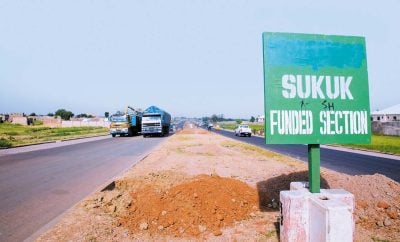
On the side-lines of Standard Bank’s African Central Banks Conference 2023 in mid-March, Pedro Besugo spoke to Pedro Castro e Silva, deputy governor of Angola’s central bank, the National Bank of Angola, about the country’s prospects.
African Banker: High oil prices have helped Angola through a difficult period, but is economic diversification happening fast enough and will the 2023-27 national development plan help?
Pedro Castro e Silva: Yes, economic diversification is a very important issue in Angola. Oil really commands our economy because 95% of the value of our exports comes from oil, while 65% of fiscal revenues come from oil. It also accounts for about 40% of our GDP. So oil is a very important commodity for us.
Now, we also recognise that it’s a volatile commodity in terms of the price and that’s why economic diversification is key for the sustainability of our economy. The government has a programme to diversify the economy. It’s mainly focused on agriculture, which only accounts for 6% of our GDP currently. By comparison, in Mozambique, for example, agriculture accounts for 20% of GDP. So we have to invest more in agriculture. This is also very important for our international reserves. Right now, we spend between $200m and $250m every month to import food.
So that’s why the government is focused on economic diversification. It has been investing in infrastructure, particularly on three specific programmes – cereals, fisheries and cattle. So, this is how we are pursuing economic diversification in Angola.
In what sectors do you see particular opportunities for economic growth, and how can the central bank help to achieve this?
Industry is one because, like most other African countries, we do not transform most of our primary products. So, this secondary sector of the economy also needs investment and industry is a big part of it. There are also several initiatives in the services sector with investment in telecommunications and mobile money operations. I would say we need investment to really capitalise on economic diversity across all of our GDP structure.
The IMF has highlighted the importance of fiscal adjustment and welcomed the commitment to medium-term fiscal and debt targets. How important is it for the government to stick to these?
We have had some luck in terms of the oil price. We will have to see what happens now with events in the US, but after six years of economic contraction, we experienced positive GDP growth last year and we are due to have a similar result this year. Fiscal consolidation was very important in helping us achieve this.
The reforms carried out in the forex sector were also a very important part of this. We have changed a lot there. Previously you needed to get a licence from the central bank if you wanted to invest in the country, to send more than $250,000 abroad, or to import food. That is no longer the case. Now it’s up to the financial capability of the person.
So, we took away the focus on exchange controls and we are now much more focused on anti-money-laundering and counter-terrorist-financing. As long as banks carry out their due diligence function, people are no longer restricted from any FX transactions they want to make.
Do you anticipate more turbulence ahead for emerging market currencies, particularly those in Africa?
For oil-exporting countries, the price of oil is very important; it’s positively correlated to the value of the currency. Whenever the price of oil goes down, we have less foreign exchange, and this affects the value of the local currency. The same is true for other commodity-exporting countries, whether it is food or energy. It will all depend on the international economic environment.
So we will have to see what the impact of the war in Europe is. We will have to see what happens now that China is opening up and supply chains are re-established. And also how far the banking issues that have cropped up in the US go.
In terms of the conflict in Ukraine, what do you think will be the effects for Angola and the region as a whole?
On one hand, the war led to high oil prices and that could be seen as a good thing for Angola, but it actually isn’t. On the other hand, it also impacted food prices and we are a net importer of food so that has an impact on our inflation rate.
I think when the conflict is resolved – and right now we can’t foresee when – world trade will be re-established and I don’t think it will have a big impact on world prices. So these are the two scenarios that can happen. What it means is that we have to continue to invest in economic diversification so that we are not overly affected by issues outside our borders.
What is the current situation with inflation?
We are on an opposite cycle to most of the world because inflation in Angola is going down and this has to do with how expectations are formed in Angola.
The exchange rate is a very important indicator in terms of expectations in Angola and whenever you have either an appreciation of the currency or currency stability, then expectations are also stable and then inflation starts to come down.
On the other hand, if you have volatility in the exchange rate or depreciation it has a big impact on inflation. So, lately we have had an appreciation of the currency and this has had a positive impact in terms of inflation. When we started with the reforms in 2018, the difference between the formal and informal FX markets was about 150% and inflation was 42%. Now, the difference is below 20% and inflation is down to 11.8%. We have an objective of between 9% and 11% in 2023 so I think we are in a very good position,
Regarding the banking turbulence in America, what can central bank governors in Africa learn?
We can learn a lot of lessons. First of all, no bank is too small to cause financial stability issues. Silicon Valley Bank was not considered a big bank in the US and for that reason was not subject to the same regulations that applied to the bigger ones. So, perhaps that has to be adjusted.
Another lesson is that Basel II and III have proven to be fairly important regulatory frameworks. The good news is that most of the banking systems in the world are applying those principles. In the US, however, I don’t think that those principles are applied very much so perhaps that is something to reflect on.
Besides that, I think that these events will also cause regulatory frameworks to be revisited at the Bank for International Settlements (BIS) level and we will all have to participate in that process. So even though it’s not good news, it might prove useful as a catalyst for the review of the regulatory framework and make the banking sector even more solid in the future.
For us in Angola, the banking system is very solid. The average capital ratios are well above minimum. The channel through which we feel this sort of phenomenon coming from overseas is through the oil price. Already the price seems to be going down rather rapidly and it will be a matter of concern for us if the trend continues, but for now we will have to wait and see.
With China coming back into the global economy, do you foresee that having an impact on the world price as demand likely increases?
Yes, I think it will be very important. The question now is if it will compensate for what’s happening in the US and Europe. Hopefully this banking crisis will not turn into a financial or economic crisis, as it did in the past.
What is the official position of the National Bank of Angola on digital currencies and what are some of the pros and cons that you can envisage?
We have an internal paper on central bank digital currencies (CBDCs) and we think they can be useful in three ways potentially.
The first regards how a CBDC can be useful in how we conduct monetary policy. The second is for financial inclusion. Can it be an instrument to increase financial inclusion in Angola? The third is for cross-border payments.
In terms of monetary policy, I think we have a good framework that is working. We are planning to move towards an inflation-targeting regime. As far as financial inclusion is concerned, there is some debate because when we look at examples like Kenya, Mozambique and even some West African countries, we see that mobile money was the critical instrument used for financial inclusion, so we want to do the same thing.
That’s why we have already licensed two telecom operators to offer mobile money services to the market. We’re left with the cross-border payments, which is still an expensive business for Angolan importers so we want to invest a bit more time in studying CBDCs for cross-border payments.
We are glad that we participate in several other BIS meetings where most of the information is shared so it might be also a way for us to engage. It could be a solution to facilitate cross-border payments around the world.
Are you actively engaged with Afreximbank’s PAPSS initiative and do you see it as something that can alleviate some of the barriers of payments?
Yes, I think the more we integrate African payment systems, the better for trade, so Angola participates through SADC’s RTGS system.
We will link RTGS into PAPSS and that way all 15 countries will be connected. Currently, the technical issues are being discussed between SADC, RTGS and PAPSS and soon as those are solved, we will be a part of it.
Want to continue reading? Subscribe today.
You've read all your free articles for this month! Subscribe now to enjoy full access to our content.
Digital Monthly
£8.00 / month
Receive full unlimited access to our articles, opinions, podcasts and more.
Digital Yearly
£70.00 / year
Our best value offer - save £26 and gain access to all of our digital content for an entire year!

 Sign in with Google
Sign in with Google 



